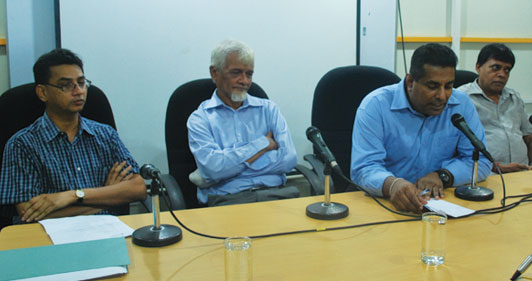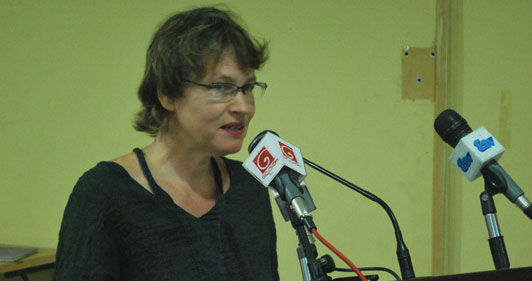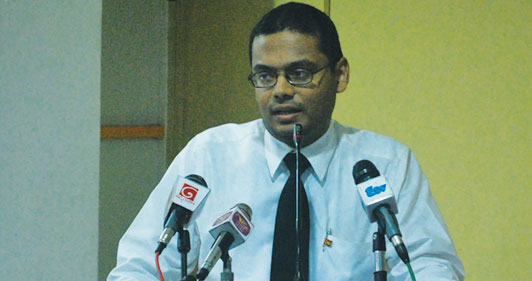The need for media personnel in Sri Lanka to show more interest in investigative journalism (IJ) was highlighted at a recent panel discussion organised by TISL and held at the Sri Lanka Press Institute (SLPI) alongside the launch of the two IJ publications – the Resource Book & the Handbook.
“In the current scenario where the country is facing so many challenges, there are plenty of opportunities for the journalists to dwell into issues in depth,” said AFP Bureau chief, Amal Jayasinghe. He cited the example of how the media took up the numerous issues that cropped up in India following the declaration of the emergency by Prime Minister Indira Gandhi.
Professor Rohana Lakshman Piyadasa, head of the Mass Communications Department – Kelaniya University emphasised the need for journalists to take a broader view rather than being restricted in what they write. He pointed out that although there is much accent on politics in writing news stories, there are so many other subjects on which journalists can work on. More attention should be paid to those. That is how investigative journalism can develop, he said.
‘Ravaya’ Editor Victor Ivan described investigative journalism as “the jewel in the crown” in journalism. He lamented that not many journalists pay much attention to investigate into a story but tend to find a little bit and write a lot. Very often they tend to be influenced by the dictates of powerful individuals when they start pursuing an interesting story with the result that either it becomes a one-sided affair or a very superficial news story. He stressed on the need for an incident to be investigated thoroughly before writing about it.
The moderator was TISL’s Shan Wijethunga.
Friedrich Ebert Stiftung (FES) Country Head, Bettina Mier said that FES was pleased to partner TISL in the programme on investigative journalism. She added that investigative journalism is a useful tool for a community to access information and learn about the systesm.
SLPI CEO Imran Furkhan welcomed the participants.



